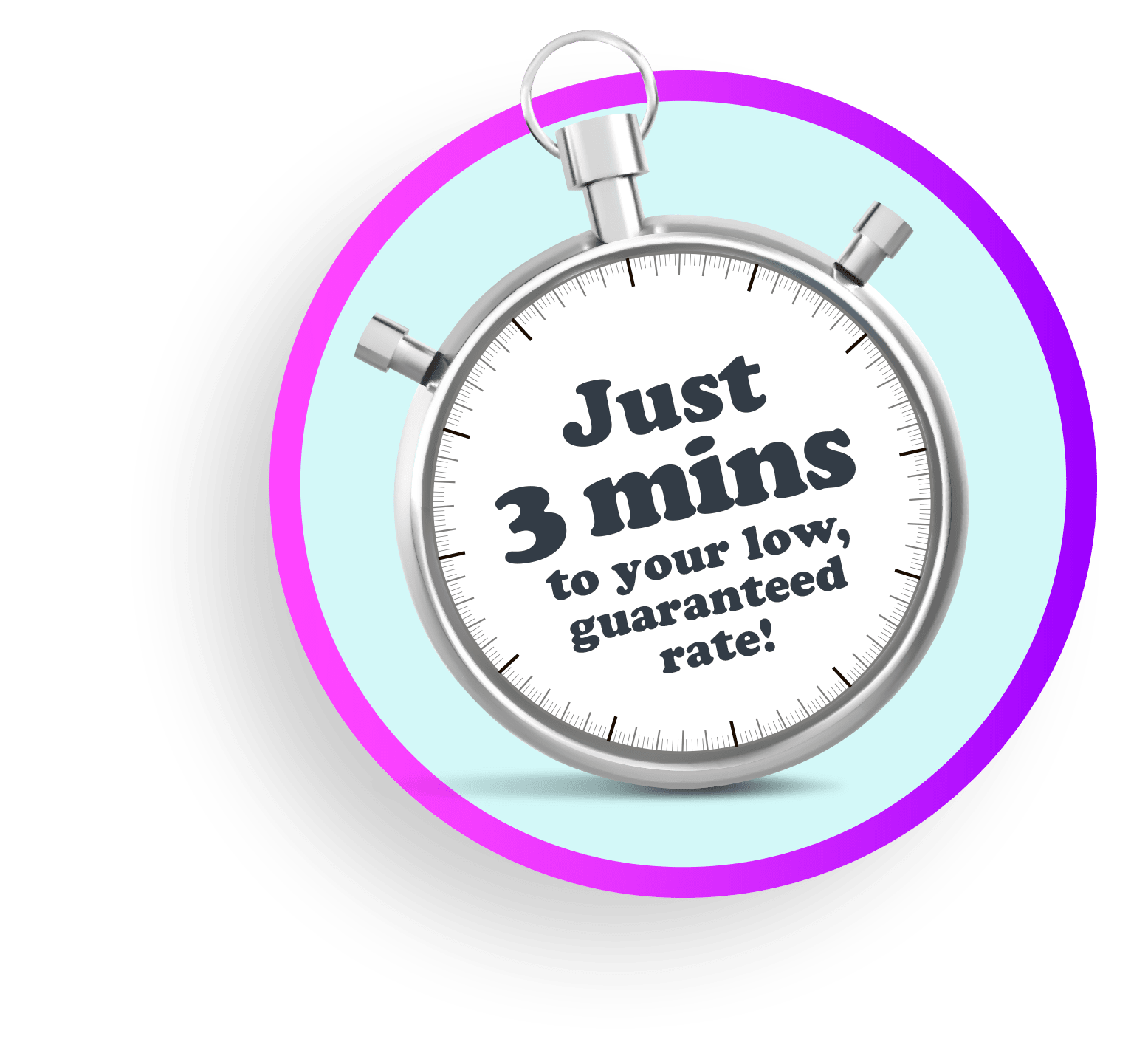Home insurance
Home insurance Ontario
Fast facts about home insurance in Ontario
Average home owner insurance rate
Average tenant insurance rate
Average condo insurance rate
Average home insurance rate for all policy types
Average real estate price (March 2020)
Million residents
Average household income
%
Unemployment rate
Understanding home insurance in Ontario
Ontario’s home insurance rates aren’t as high as its car insurance rates, thankfully. In fact, they’re not even as high as rates in some other provinces.
There are several reasons for that. House insurance is just generally less expensive than car insurance, but Ontario is also a safe place to live in general (even with the rise in severe weather).
As of 2018, Ontario’s average home insurance rate was lower than Alberta’s and British Columbia’s, both for homeowners and tenants.
It’s also important to understand that one size does not fit all with home insurance. That’s why we’ve broken down the average home insurance rates into policy types. You’ll see different rates by city for home owners, tenants, and condos.
Get your bundle on & save!
Want even cheaper insurance? Save up to 50% on home and up to 15% on car insurance when you bundle them.

Get your bundle on & save!
Want even cheaper insurance? Save up to 50% on home and up to 15% on car insurance when you bundle them.

Busting myths about home insurance in Ontario
Myth: Will insurers pay the cost of your home if it’s heavily damaged?
If a home needs to be rebuilt, home insurance policies don’t compensate policy holders for the market cost of a property. They usually cover the cost to rebuild (up to the limit outlined in the policy). Once in a while a property might pay out through “actual cash value,” but it’s not nearly as common.
Myth: Homes are covered for overland flood damage automatically.
Homes are not covered for overland flood damage under regular home insurance policies. It’s possible to buy that coverage, but you need to make sure that your insurance provider offers it in your area.
Myth: Home insurance is mandatory.
Home insurance technically isn’t required by law to own a house in Ontario, but that comes with a caveat. Most lenders will require proof of home insurance before they lend you the money for a mortgage on your home. Since most of us don’t have the money to buy a house on a whim, most home owners will still need home insurance anyway.
Myth: You’re covered for sewer backup insurance automatically.
Normal home insurance policies don’t come with sewer backup coverage, but you can buy coverage for it to add to your policy.
Nobody makes this mistake twice. Trust us on this one.
Average annual home insurance rates by city (all policy types)
This includes home owner’s policies, condo policies, and tenant policies. If you only want to see home owner’s insurance policies, just jump to it below.
Here’s what our data says.
- Val Caron: $2,280
- St Catharines: $2,080
- Pefferlaw: $1,621
- Thunder Bay: $1,141
- Woodbridge: $1,100
- Kanata: $1,082
- Orangeville: $1,050
- Angus: $1,013
- Brantford: $928
- Newmarket: $927
- Kingston: $898
- Hamilton: $877
- Kitchener: $869
- Windsor: $863
- Maple: $852
- Courtice: $842
- Markham: $828
- Simcoe: $822
- Brampton: $809
- Woodstock: $804
- Cambridge: $803
- Oakville: $782
- Gloucester: $755
- Barrie: $749
- York: $736
- Nepean: $695
- London: $691
- Mississauga: $688
- Innisfil: $686
- Ajax: $662
- Waterloo: $660
- East York: $660
- Stoney Creek: $656
- Scarborough: $649
- Sault Ste. Marie: $615
- Richmond Hill: $612
- Etobicoke: $609
- Milton: $573
- Whitby: $554
- Burlington: $550
- Oshawa: $545
- Stouffville: $499
- North York: $471
- Toronto: $470
- Ottawa: $448
- Thornhill: $441
- Guelph: $391
- Niagara Falls: $362
Data from a survey of 2,800 home insurance policies across Ontario.
*See sources below
Average annual home insurance rates by city (home owners)
This set of home insurance averages are only for home owners.
Here’s what our data says.
- St. Catharines: $2,862
- Val Caron: $2,280
- Toronto: 2,169
- Hamilton: $2,168
- Maple: $2,037
- North York: $1,924
- Ajax: $1,726
- Newmarket: $1,726
- Brantford: $1,669
- Kitchener: $1,656
- Pefferlaw: $1,621
- Woodbridge: $1,616
- Etobicoke: $1,610
- Barrie: $1,585
- Burlington: $1,568
- Waterloo: $1,524
- London: $1,493
- East York: $1,485
- Markham: $1,479
- Brampton: $ 1,459
- Oakville: $1,383
- Kanata: $1,373
- Scarborough: $1,315
- Mississauga: $1,244
- Courtice: $1,241
- Gloucester: $1,227
- Thunder Bay: $1,223
- Kingston: $1,202
- York: $1,190
- Cambridge: $1,188
- Woodstock: $1,174
- Angus: $1,161
- Milton: $1,156
- Orangeville: $1,106
- Parry Sound: $1,102
- Innisfil: $1,087
- Stoney Creek: $1,065
Quick tips on home insurance in Ontario
Always double-check your policy for extreme weather coverage.
Many of us don’t even realize how exposed we are to the financial costs of severe weather, which is becoming more and more common. Repairing the damages can be disastrous for most folks, so it always pays off to make sure you’re covered against things like overland flooding or wind storms, where coverage is available.
If you’re running a business from home, then you might need a separate policy.
You can get an add-on for small businesses or side hustles that you run from your home, but if you run a business from home full-time, then it you might need a separate policy to cover the risks of your business appropriately.
Check out our home business checklist to see what’s most appropriate.
Insurance works a little differently if you own a condo unit.
Condo insurance is easy to get, but it doesn’t work exactly the same as insurance for detached homes in the event you need to make a claim.
There are two reasons for that: your condo association may have a “master” policy in place to cover shared areas, and you’re usually not held directly responsible for maintaining everything around your unit (like hallways, elevators, or the outside walls).
If you have pets, then make sure that you also have healthy liability coverage.
While you can get dedicated pet insurance specifically for ol’ puppers, it doesn’t cover incidents like a dog biting your neighbour. If that happens, then your home insurance policy’s liability coverage will kick in.
That’s why it’s wise to advise your insurance company that you have a pet. Side note: you really want to do this for exotic pets.
Just 3 measly minutes to your marvelous rate.
Just 3 measly minutes to your marvelous rate.

How to to get cheap home insurance quotes in Ontario
Bundle home and auto policies
This is the number-one way to save money on home insurance. We offer up to 18% off on auto policies and up to 50% off on home policies, depending on the quote. Not to brag, but it’s a pretty sweet deal.
Choose safe neighbourhoods
Insurance companies also use your postal code to calculate your insurance rates (both for home and auto!). Living where claims, accidents, theft, and even severe weather occur more frequently could see higher rates than the average.
Avoid very old homes
Very old homes may contain things that insurance providers consider too risky to insure. Certain types of piping, 60-amp electrical systems, outdated fuel tanks, and wooden stoves could prevent you from finding reasonable coverage.
Get sewer backup coverage
Sewage backup isn’t too common, but it does happen—and when it does, it’s disastrous to your entire home. Get a backwater valve and some coverage to make sure you’re not left holding the short end of… oh, that’s not a stick.
Get overland flood coverage
If you’re in a flood plain, then your home is at risk of damage from overland flooding. You do not want to find out you don’t have coverage right when you actually need it. This doesn’t happen often, but it can protect you from financially ruinous repair costs.
Make sure a fire hydrant is within 300 metres
Home fires happen, and insurance providers take it into account. That’s why they consider your home to be safer if it’s within 300 metres of a fire hydrant. It allows first responders to put out a fire faster, preventing further damage to your home.
Consider a home security system
Home security systems make your house safer in the eyes of insurance providers. That’s why you should always ask about discounts on your home insurance policy if you have those measures in place. If not, then schedule the most important belongings in your home.
Consider "all risk" coverage
Normal home insurance policies only cover “named perils.” This is usually a standard set of the most frequent kinds of home damage. “All perils” policies cover your home for a much wider range of potential kinds of damage, protecting your wallet that much more.
Frequently asked questions about home insurance in Ontario
Are “acts of God” covered in home insurance?
Not these days, no. Insurance providers underwrite policies based on actuarial science, which accounts for just about every kind of potantial event under the sun.
That’s why home policies come with a standard level of coverage (a “named perils” policy), or an advanced level of coverage (an “all-risk” policy).
Does my insurer need to know about renovations or changes to the house?
Yes, absolutely. Your home insurance rate is based on many, many factors that underpin the level of “risk” to which your home is exposed, as well as how much it would cost to repair damage if something were to happen. Renovating your home will likely affect the level of risk and the cost of repairs. Don’t have claims denied for material misrepresentation!
Does my location affect my home insurance rate?
Multiple factors related to location affect your home insurance rate. We’ve already mentioned that it helps if there’s a fire hydrant within 300 metres of your home. Your rate could be affected if your home is located where severe weather occurs at a reasonable rate, such as a flood plain or areas prone to wind storms. Last but not least, the level of crime and even the frequency of other insurance claims in your area can affect your rate as well.
Does having a pool make a big difference for home insurance?
Swimming pools have a direct impact on your home insurance rates for several reasons. First, owning a pool increases the cost to rebuild your home (a major factor in home insurance). Second, pools come with additional risks to personal safety that could result in cases of legal liability if someone were injured. Third, if the water from the pool somehow leaked into your home’s foundation, it could lead to a serious repair bill.
Sources for facts about Ontario:
- Survey of more than 2,000 home insurance policies in Ontario
- Insurance Bureau of Canada
- Canadian Real Estate Association, “National Price Map.”
- Statistics Canada

Google Rating: 4.8
Hot Dang! Those are some beautiful words from beautiful people.































